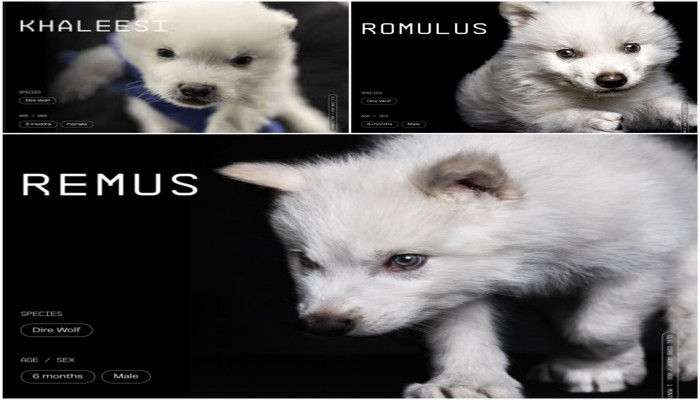Colossal Biosciences revives dire wolf species extinct for 12,500 years
- In Reports
- 04:26 PM, Apr 08, 2025
- Myind Staff
Colossal Biosciences, a biotech firm based in Dallas, has revealed the birth of three dire wolf puppies named Remus, Romulus, and Khaleesi. The dire wolf, made popular by the HBO show Game of Thrones, has been extinct for nearly 12,500 years. The company shared that Romulus and Remus, both adolescent male pups, were born in October 2024, while Khaleesi, a female, was born in January this year. Alongside this, Colossal has also successfully cloned two litters of red wolves, one of the most endangered wolf species in the world.
“I could not be more proud of the team. This massive milestone is the first of many coming examples demonstrating that our end-to-end de-extinction technology stack works,” Ben Lamm, the CEO of Colossal Biosciences, expressed in a press release. “Our team took DNA from a 13,000-year-old tooth and a 72,000-year-old skull and made healthy dire wolf puppies. It was once said, ‘any sufficiently advanced technology is indistinguishable from magic.’ Today, our team gets to unveil some of the magic they are working on and its broader impact on conservation," Lamm further said.
As stated in the press release, scientists brought the dire wolf back to life by extracting and sequencing DNA from two fossils. They then compared the ancient DNA with modern canids like wolves and foxes, identifying distinct genetic traits, such as white fur and dense coats, and adaptability to the cold climates of the Pleistocene era. Using gene editing, they modified a grey wolf’s genome by making 20 alterations across 14 genes, including 15 traits from the extinct species. The edited cells were tested and used to clone embryos, which were then implanted into surrogate animals. This process led to the successful birth of a dire wolf.
“The de-extinction of the dire wolf and an end-to-end system for de-extinction is transformative and heralds an entirely new era of human stewardship of life,” Dr Christopher Mason, who serves as a scientific advisor and is part of Colossal’s board of observers, shared this in the press release. “The same technologies that created the dire wolf can directly help save a variety of other endangered animals as well. This is an extraordinary technological leap in genetic engineering efforts for both science and for conservation as well as preservation of life, and a wonderful example of the power of biotechnology to protect species, both extant and extinct.”







Comments